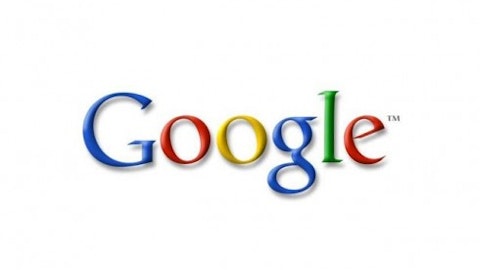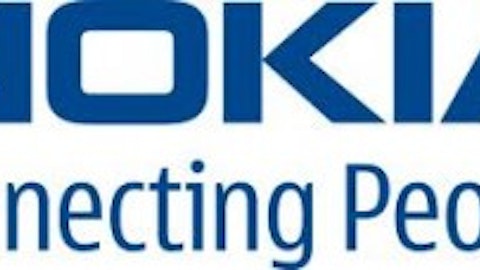The war for the TV is on. Everyone from Google Inc (NASDAQ:GOOG) to Apple Inc. (NASDAQ:AAPL) and Microsoft Corporation (NASDAQ:MSFT) want their slice of your TV time.
Google Inc (NASDAQ:GOOG) just jumped ahead of the competition with a new product: Chromecast. The $35 device turns any HD TV into a light Smart TV capable of watching everything from YouTube videos to Netflix, Inc. (NASDAQ:NFLX)’s streaming movies and digital content. Simply plug Chromecast in any available HDMI port and voilà – you’re the proud owner of a Smart TV.

Why this changes the game
Smart TVs retail at price points $2-300 higher than your average HDTV. With added costs comes added functionality as a Smart TV is really just a TV with a cheap, low-power computer built in.
Google Inc (NASDAQ:GOOG) undermined recent developments and the war for the TV with the new Chromecast product. For just $35, customers can watch streaming videos, access chrome apps, and control their streaming content with a mobile device (tablet, mobile phone, or laptop computer). It even has cross-platform functionality, meaning Apple Inc. (NASDAQ:AAPL) users will get just as much use from Chromecast as Android and Windows users.
At the $35 price point, customers also receive three free months of Netflix, Inc. (NASDAQ:NFLX) streaming service, a $23.85 value, making the device itself cost only $11.15. It will soon appear online at Amazon.com, Inc. (NASDAQ:AMZN) and Best Buy Co., Inc. (NYSE:BBY) shelves around the country.
Chromecast’s only deficiency is that it cannot be used to stream local content. Thus, files downloaded to your computer that are not available for public streaming won’t be playable from day one. However, speculation is growing that an army of third-party app developers will have a solution available in a matter of days to fix this minor disadvantage.
Who it affects
A new Chromecast comes as Apple Inc. (NASDAQ:AAPL) and Microsoft Corporation (NASDAQ:MSFT) are making major moves to merge mobile and laptop products with home media centers. Apple Inc. (NASDAQ:AAPL) is rumored to have investigated its own full-capability smart TV while Microsoft Corporation (NASDAQ:MSFT) is betting big on entertainment on the new Xbox One.
Microsoft Corporation (NASDAQ:MSFT) has much to lose from the widespread adoption of Chromecast. The company generates substantial revenue from Xbox Live Gold memberships, which are required for streaming content from Hulu and Netflix, Inc. (NASDAQ:NFLX) via the Xbox hardware. Chromecast’s adjusted price of $11.15 (to reflect the free Netflix, Inc. (NASDAQ:NFLX) subscription) is a much cheaper alternative than the $50 per year price point for Xbox Gold. Customers who renew only to continue to stream content via their game console would naturally favor a one-time payment for Chromecast.
Likewise, Apple Inc. (NASDAQ:AAPL) loses out on an avenue for growth. Apple TV, a $99.00 product that allows you to stream content from an Apple Inc. (NASDAQ:AAPL) device to a connected TV, is substantially similar. Apple TV doesn’t have cross-platform support, however, which means you’ll need an iDevice to use it. If it’s simple streaming you’re after, the Chromecast is a much more compelling value than Apple TV.
Apple may be down, but it isn’t out. The company could launch its own line of fully-functional Smart TVs that rely on its mobile iOS. However, a higher price point may be difficult to justify given that many of the features inherent in a smart TV are now available at an add-on price of $35 with Google’s new product. Chromepass will demand that Apple forgo its industry leading margins if it wants to grab a meaningful share of the Smart TV market.
How Google Inc (NASDAQ:GOOG) wins big
The new Chromecast is huge for Google Inc (NASDAQ:GOOG)’s video monetization strategy, especially on YouTube. Google Inc (NASDAQ:GOOG) servers will easily recognize the device, perhaps commanding higher ad rates for displays on TVs across the country. It also affords Google the ability to sell highly-targeted online video campaigns on TVs in chosen local markets. Google’s YouTube just became a local cable company in the most asset-light way imaginable.
The device also propels Google to the top of the race for control over the TV. Chromecast requires the use of Google’s Chrome browser, locking in the company’s share of browser use and in-browser web search.
Finally, the company now has a new mechanism through which it can sell TV episodes and movies for a flat-fee for 24 hour streaming via Google Play.
Other winners include Netflix, Inc. (NASDAQ:NFLX), which have come under concerns of increasing pricing pressure. A partnership between Google and Netflix, Inc. (NASDAQ:NFLX) suggests that the search engine company is likely to stick to pay-per-view TV and movie sales rather than seek part of Netflix’s unlimited streaming model. The device puts Netflix subscriptions on store shelves around the country in a format that will be wildly popular with budget-conscious consumers. Terms of the partnership between the two tech giants are unavailable, so it’s unknown how this may affect Netflix’s forward profitability and per-user revenue numbers.
It’s difficult to see how this won’t play out in Google’s favor. At a price of $35 for the device plus three free months of Netflix service, it’s a no-brainer for anyone wanting a quick and dirty way to get their own Smart TV.
Jordan Wathen has no position in any stocks mentioned. The Motley Fool recommends Apple, Google, and Netflix. The Motley Fool owns shares of Apple, Google, Microsoft, and Netflix. Jordan is a member of The Motley Fool Blog Network — entries represent the personal opinion of the blogger and are not formally edited.
The article The War for TVs originally appeared on Fool.com is written by Jordan Wathen.
Copyright © 1995 – 2013 The Motley Fool, LLC. All rights reserved. The Motley Fool has a disclosure policy.





